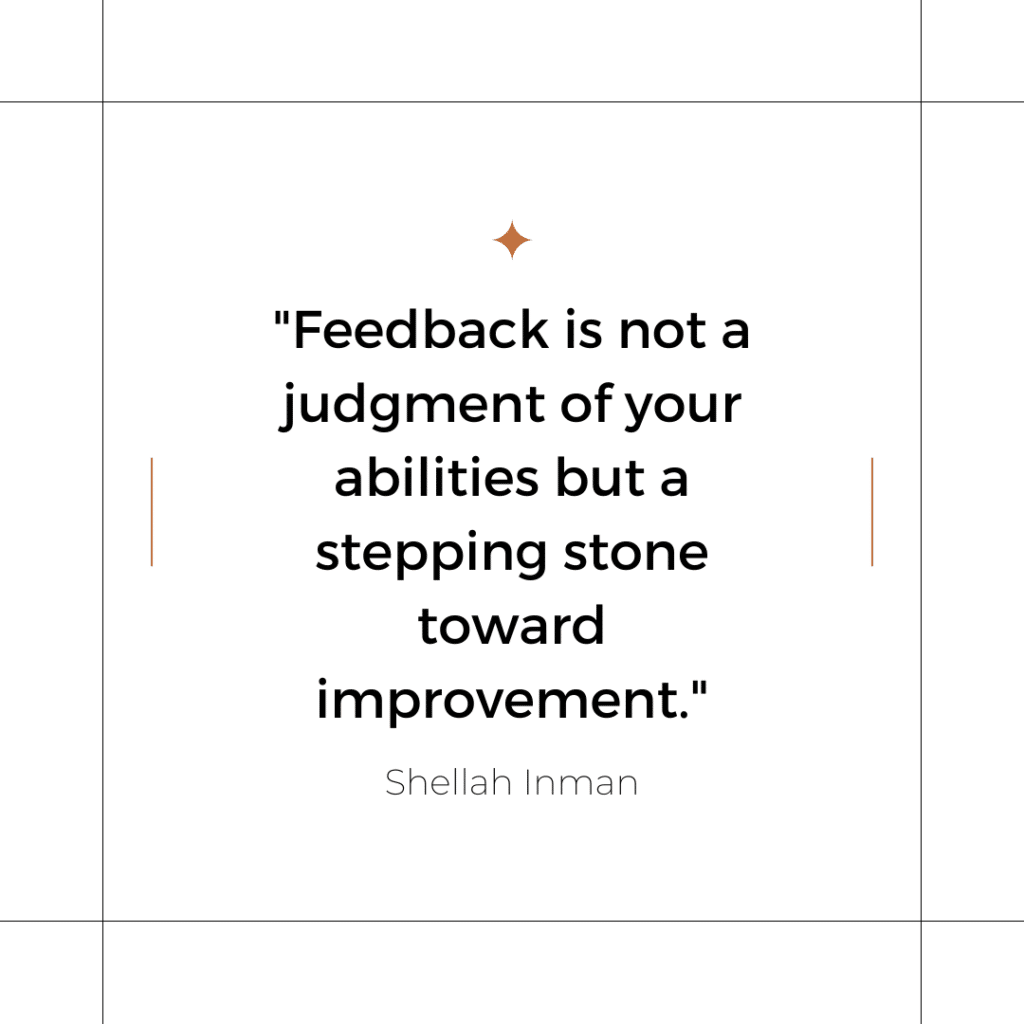
As a writer, you pour your heart and soul into our work, striving to craft the perfect piece. And when you receive constructive criticism, sometimes it can hurt. However, no matter how skilled we are, receiving feedback is essential to writing. After all, even big-name authors, who you consider pros, receive feedback on their writing and have to do revisions. They welcome that feedback to create even better stories than they could write alone.
So how do we keep ourselves from becoming defensive and learn the art of receiving feedback on our writing? Be courageous, listen, and evaluate the feedback.
Be Courageous When Receiving Feedback on Writing:
Feedback is not a judgment of your abilities but a stepping stone toward improvement.
Receiving feedback on your writing is an act of courage. I won’t lie. You are opening yourself up to negative feedback. But by being courageous and receiving that negative feedback, you learn and improve faster than learning on your own. So, rather than perceiving feedback as criticism, we should view it as an opportunity for growth.
Remain open to the feedback:
Show your courage by remaining open to the feedback you receive. This vulnerability can be hard to do because we often perceive feedback as a reflection of our worth as a writer. How often have you thought the person giving you feedback didn’t know what they were talking about? Those thoughts are spurred on by us taking the feedback personally. That thought is your shield being raised to defend your self-worth from harm. Remember that the person giving you feedback wants your book to succeed. They are not trying to be mean. They see your manuscript’s potential and wish the best for you.
Actively listen without counterarguments:
Once you are open to feedback, the next step is to cultivate active listening skills. Practice genuinely listening to or reading the provided feedback without interrupting or formulating counterarguments. Listening can be hard when like Robert Lee Brewer says, “I often did find that my initial impulse was to defend my writing.” So to actively listen, you need to tamp down that initial impulse and just listen. Keep those defensive thoughts out of your head.
Reflect After Receiving Feedback on Writing
After you have been courageous and actively listened to the feedback, the next step is to reflect on it objectively.
Analyze objectively:
As you reflect on the feedback, analyze it objectively. Most of the time, there is a germ of truth in what is being said. The person giving feedback, especially if they are not a trained editor, might not know how to articulate what is wrong but will know when something is off. It is your job as the writer to listen and figure out what that person is trying to say.
Conclusion to Receiving Feedback on Writing
Receiving feedback on our writing is essential to our journey as writers. By being courageous, practicing active listening, and reflecting objectively, we can grow as writers and produce even more compelling work. Remember, feedback is not a judgment of your abilities but a stepping stone toward improvement.

